Even grannies in the courtyard talked about WorldSkills: what became of skilled jobs a year after the championship?
A year after the world championship: what legacy WorldSkills movement left in Kazan
Kazan hosted WorldSkills championship for the first time in late August 2019. A year after the end of the “Olympics of workforce”, together with experts Realnoe Vremya evaluates what legacy the championship left in Kazan and if the movement managed to make a long-term contribution to the popularisation of skilled jobs.
“Our common responsibility is to save the legacy of WorldSkills championship”
From 22 to 27 August 2019, Kazan hosted the 45th WorldSkills championship: 1,354 young professionals (under 22 years) from 63 countries and Russian regions fought for medals in 56 skills and made this championship truly grandiose and memorable. In the unofficial overall rankings, the Russian team was second in the championship at home, students from China took the lead.
During the closing ceremony, President of Russia Vladimir Putin addressed the participants and spectators. The Russian leader stressed that “our common responsibility is to save the legacy of WorldSkills championship for the citizens of all our countries so that every person regardless of age and health will be able to realise the potential, choose one’s own road of training and development, learn sought-after skills throughout one’s life”.
WorldSkills International is an international movement whose goal is to make skilled jobs more popular, raise the status and vocational training and qualification standards around the world. The WorldSkills championship is the world’s biggest competition of vocational skills. The Russian Federation joined WorldSkills international movement in 2012. Now WorldSkills Russia covers all 85 regions and is one of the prioritised projects in staff training.
“The lads don’t hide their face but openly talk about themselves”
Chairwoman of the Board of Directors of Vocational Educational Establishments of Tatarstan, Director of Kazan Pedagogical College, manager in Pre-school Education skill Anfisa Zalyalova thinks that even not the upgraded infrastructure in Kazan colleges is the main legacy of WorldSkills but the fact that “the prestige of skilled jobs was raised to the level it needed to be at”. “Today when choosing a job young people must see the risks and prospects. It isn’t accidental that today we see demand for skilled staff, vocational, technical jobs in establishments of Secondary Vocational Training (SVT) are in high demand,” thinks the expert.
Anfisa Zalyalova thinks that the WorldSkills championship in Kazan demonstrated the mobility of the system of SVT itself.
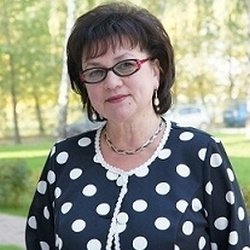
Zalyalova thinks that the interest in skilled jobs in Russia won’t wane anymore. And the SVT system won’t go back to its previous state because standards themselves and training approaches changed. “We understood the demand for these jobs from the real sector of the economy. And it is impossible to stop this machine anymore. The system won’t take a step back,” she thinks. “The same vocational training master who has worked with CNC machine tools won’t work with old equipment because he has got new professional standards. New jobs appeared, colleges where these jobs develop appear at the same time.”
Anfisa Zalyalova says that the WorldSkills movement influenced the perception of college students. “The lads don’t hide their face but openly talk about themselves. It is very pleasant to see them so proud of this profession, which makes me cry, it’s great!” she admitted.
“Most importantly, the real sector of the economy must feel these effects”
Director of Kazan Trade and Economy College Raziya Savchenko enumerated the legacy of WorldSkills championship in the broadest sense:
- Vocational training teachers and masters who did training, retraining and upgraded their qualification in the world’s best programmes;
- Teachers and masters who obtained the status as national and regional experts who have certificates for the right to demo exams by WorldSkills standards;
- Students who got a chance of participating in the movement and learnt the world’s best experience;
- Enterprises our skilled graduates joined. They don’t need to be adapted in the labour market. It is the specialists who will bring new technology to production;
- Financial assets. Equipment from the world championship remained in Tatarstan and was handed over to colleges.
According to Realnoe Vremya’s interlocutor, in accordance with world standards, five specialised skill centres were equipped at Kazan Trade and Economy College: restaurant service, cooking, hairdressing, photo and floristry.
“We also equipped tailor workshops, manicure and pedicure laboratories, a beauty room. The IT software we received became as popular as never before,” she noted.

By the interlocutor’s estimate, there has been a significant rise in the interest in vocational training in the last years. She provides numbers: if the college admitted almost everybody for the specialisation Service Organisation in Public Catering three years ago (the same thing was in Hairdressing, Photography, Construction and Sewing Machine Design Technology), this year there are 2-3 people per place and even four people per place among future cooks. “Most importantly, the real sector of the economy must feel these effects because we train staff for the employee and see it as the primary goal,” Raziya Savchenko concludes.
“Attention is paid not to the diploma but a sufficient level of training and set of skills when hiring for a job now”
Vice Director of Education at Kazan Information Technologies and Communications College Oksana Timofeyeva believes that almost everybody became familiar with WorldSkills movement thanks to hosing the world championship in Kazan. “WorldSkills made secondary vocational training more popular. More undergraduates want to join this movement and choose the skill that interests them and go into it,” she thinks.
“Only a handful of people who worked in the SVT system used to know about this movement. But now everybody — children, parents, grandparents — is familiar with it. Hosting WorldSkills championship drew attention to the SVT, and now our colleges are provided with the state-of-the-art equipment, graduates are in demand in the labour market both in Tatarstan and Russia. Employers began to pay attention to SVT graduates, participate in the creation of educational programmes, the formation of professional skills for students. If employers used to disregard college graduates, they used to compulsorily pursue a university degree, attention is paid not to the diploma but a sufficient level of training and set of skills when hiring for a job now. They already know what colleges of the republic train smart specialists with a respected competence,” the vice director claimed.

Oksana Timofeyeva noted that the equipment the college received to prepare for WorldSkills is used to train the national and republican teams and in training and implementing educational programmes within The Older Generation federal project of Demography national project. “The new equipment helps to develop the WorldSkills movement further and develop secondary vocational education in general,” the expert said.
“We teach employers in some areas”
Director of International Service College Farida Kovalyova is convinced that it is early to sum up the legacy of the world championship in Kazan.
“A year isn’t enough for it, moreover, almost half the year was online training. As for the legacy of the WorldSkills movement in general, its meaning is huge. We joined this movement in 2012 and have changed very much over this time. We have changed not only from a perspective of infrastructure but also technology, quality of graduates’ knowledge, demand from employers. We have realised many things, teachers who pass their knowledge to students have upgraded their qualifications several times. If we used to teach with traditional classic technology and some tools, ingredients were unavailable and unclear for us, now we can certainly say that we teach employers in some areas,” she noted.
According to the interlocutor, if during the first years after joining the WorldSkills international movement the goal was to train champions, now all students must gain this knowledge.
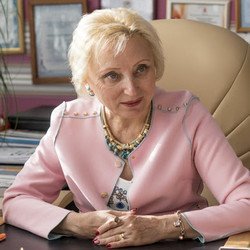
As for the college’s graduates’ demand, Farida Kovalyova stressed that employers already pick them during studies, while food technologists are like hot cakes.
“The interest in vocational training increased at all levels”
Director of Kazan Medical College, Doctor of Medical Sciences Zukhra Khisamutdinova considers that even the mentality of the population, the government changed in favour of skilled jobs thanks to Russia’s membership in WorldSkills international movement.
“It is an advantage, of course. We began to look at skilled jobs differently. There wasn’t such a big interest in vocational training until 2012. And after Russia joined the international movement, many colleagues turned into workforce centres, the interest of the republican president in the SVT increased, ministers start to pay more attention to this sphere. The interest in vocational training increased at all levels, and it is great. It was interesting to hear grannies talk about WorldSkills in the courtyard,” the expert thinks.
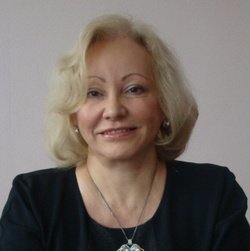
“In our country, the sanitary and epidemiological regime is strictly respected, our competitor often disinfected her hands, changes gloves. Experts even made a remark that she was changing gloves, disinfecting her hands too often. They think it is too wasteful, the West began to save resources,” she noted.
Influx of undergraduates
Director of Kazan Popular Crafts College Raushania Saubanova claims that WorldSkills championship left an amazing trace in Kazan.
“It is infrastructure, equipment, training, new standards. We are very glad. Our college was given equipment in Gem Cutting, it is machine tools that are worth 4 million rubles and consumables. We have already taught the older population above 50 years with this infrastructure in our free time in the evening in a programme on an additional degree. In Jewellery, we were handed over the equipment of the world and national championship at over 10 million rubles,” she said.
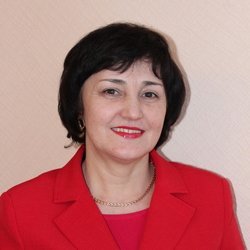
“It is just a premier league”
Director of Kazan Construction, Architecture and Urban Economy College Zhamil Bakayev says that thanks to WorldSkills movement it became possible to achieve teachers’ professional growth.
“We saw the world level in our skills, it is just a premier league. We saw a lot of people, students, their parents on the sites of the championship. They saw that some jobs were appreciated not only in Russia but also around the world. For instance, it became a revelation for me that carpentry цфs very popular in Great Britain,” he admitted.
According to Zhamil Bakayev, SVT establishments received the latest equipment thanks to WorldSkills equipment.
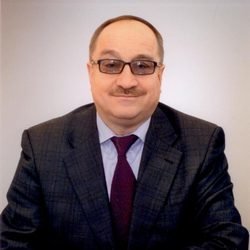
Zhamil Bakayev is convinced that the arrival of trained specialist from SVT establishments to the economy must become the main effect from the membership in WorldSkills movement.
“Everybody can’t participate in WorldSkills movement. But through this movement, we give young people a chance of showing off. In the end, we train more advanced and trained staff for the economy and learn ourselves,” he concluded.